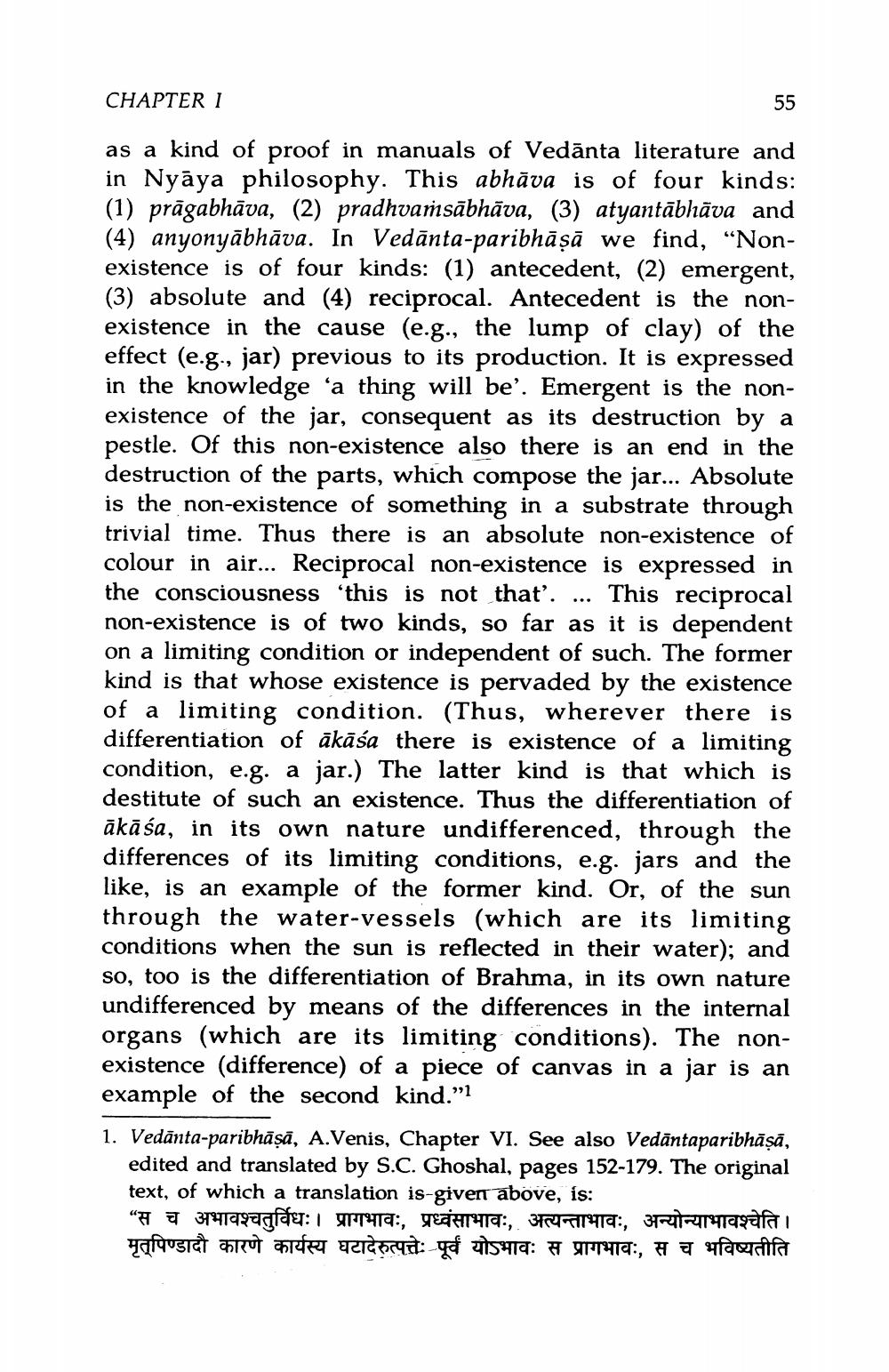________________
CHAPTER 1
55
as a kind of proof in manuals of Vedānta literature and in Nyāya philosophy. This abhāva is of four kinds: (1) prāgabhāva, (2) pradhvassābhāva, (3) atyantābhāva and (4) anyonyābhāva. In Vedānta-paribhāṣā we find, “Nonexistence is of four kinds: (1) antecedent, (2) emergent, (3) absolute and (4) reciprocal. Antecedent is the nonexistence in the cause (e.g., the lump of clay) of the effect (e.g., jar) previous to its production. It is expressed in the knowledge 'a thing will be’. Emergent is the nonexistence of the jar, consequent as its destruction by a pestle. Of this non-existence also there is an end in the destruction of the parts, which compose the jar... Absolute is the non-existence of something in a substrate through trivial time. Thus there is an absolute non-existence of colour in air... Reciprocal non-existence is expressed in the consciousness 'this is not that'. ... This reciprocal non-existence is of two kinds, so far as it is dependent on a limiting condition or independent of such. The former kind is that whose existence is pervaded by the existence of a limiting condition. (Thus, wherever there is differentiation of ākāśa there is existence of a limiting condition, e.g. a jar.) The latter kind is that which is destitute of such an existence. Thus the differentiation of ākāśa, in its own nature undifferenced, through the differences of its limiting conditions, e.g. jars and the like, is an example of the former kind. Or, of the sun through the water-vessels (which are its limiting conditions when the sun is reflected in their water); and so, too is the differentiation of Brahma, in its own nature undifferenced by means of the differences in the internal organs (which are its limiting conditions). The nonexistence (difference) of a piece of canvas in a jar is an example of the second kind.”l
1. Vedānta-paribhāsā, A.Venis, Chapter VI. See also Vedāntaparibhāṣā,
edited and translated by S.C. Ghoshal, pages 152-179. The original text, of which a translation is given above, is: “स च अभावश्चतुर्विधः। प्रागभावः, प्रध्वंसाभावः, अत्यन्ताभावः, अन्योन्याभावश्चेति। मृत्पिण्डादौ कारणे कार्यस्य घटादेरुत्पत्तेः पूर्वं योऽभावः स प्रागभावः, स च भविष्यतीति




